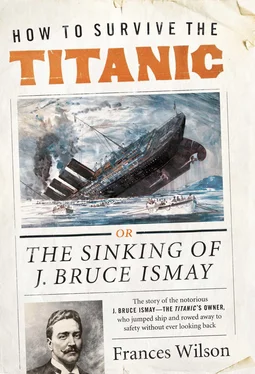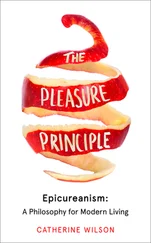Morgan’s new combine initially received a positive reception in the States. The inflation of the US merchant marine would give the country ‘a position of pre-eminence such as it has not enjoyed since the decadence of shipbuilding’ after the civil war. 33Morgan believed he was also doing the British ‘a good turn’ and expected to be greeted ‘with open arms’ when he visited London later that year; instead he found himself ‘everywhere cold-shouldered, having been suspected of filching our mercantile ships’. 34The British, who had been sanguine about Morgan putting their other shipping lines into his trouser pocket, were distressed by the loss of White Star. What, the public asked, would happen in the event of war if the nation’s finest ships were no longer owned by the nation? Ismay’s actions had ‘virtually cede[d] to the United States the control of the North Atlantic shipping business’. 35An article in the shipping journal, Fairplay, expressed the general concern:
What many people do feel is the keenest regret that such a magnificent line as the White Star, not to mention the other great lines associated with it, aggregating nearly one million tons of our best shipping, should have passed from British to American ownership, and from British to American control. The Combine fleets are American to the backbone; Americans found the capital, and it is Americans who appoint and pay the managers to this side. It is nothing but mere pretence to say that through the technical wording of the Company’s Act they are in any sense British, through this technicality they are allowed to fly the British flag, a fact most people regard as a public scandal. 36
Berlin’s National Zeitung smugly reported that ‘the blow to England is all the greater since the German companies have been able to keep out of the trust and maintain their independence’. 37Ismay’s understanding was that a partnership with the House of Morgan had been unavoidable. Had Morgan not bought up the British shipping companies, the Americans, as the British Ambassador in Washington put it, would have formed an ‘avowedly hostile combine to run our ships off the Atlantic and squeeze them… out of US ports’. Before long, the Americans began to regard the IMM as a British firm, a giant White Star Line, while the British believed that the White Star Line had secretly become American.
To prevent Cunard from joining the International Mercantile Marine, the British government granted them a subsidy of £2 million to build the Lusitania and the Mauretania, both of which were to be used as naval ships should the circumstances arise. The terms of the subsidy were that ‘under no circumstances shall the management of the company be in the hands of, or the shares of the company held by, other than British subjects’. The Lusitania and Mauretania were a huge success; at 31,000 tons and equipped with the innovative Parson’s steam turbine, they were not only the largest but also the fastest ships afloat — the Mauretania would hold the Blue Riband for over a decade; the experience of travelling in her was, for Henry James, as if ‘carried in a gigantic grandmother’s bosom and the gentle giantess had made but one mighty stride of it from land to land’.
The IMM, which was increasingly accompanied by the term ‘ill-fated’, would prove Morgan’s only disaster. He controlled 136 ships and 45 routes between Europe and North America, but was operating at a loss. Cunard’s independence had effectively handicapped the combine, which was forced to spend its profits on the construction of competing ships. ‘The ocean’, concluded the Wall Street Journal, ‘was too big for the old man.’ ‘What threatens to swamp us,’ wrote Clinton Dawkins, one of Morgan’s British partners, to Charles Steele, one of his American partners, ‘is this monstrous indebtedness for shipbuilding, and I don’t feel satisfied that we are not putting more big ships into the Atlantic than it can bear.’ 38When share prices plummeted in 1904, Morgan decided to replace the ailing Clement A. Griscom as the trust’s president. His first choice had been the brilliant Albert Ballin, head of the Hamburg-America Line, but Ballin turned it down and Morgan turned to Ismay as second best. He ‘did not mind losing money’, he explained to the White Star chairman, ‘but he did object to doing so owing to poor organisation’. Morgan’s hope was that the image of a young English captain of industry at the helm would push up the value of the company at the same time as quelling any alarm felt by the British at the ‘Morganisation’ of their favourite shipping line. Character, Morgan believed, comes ‘before anything else. Money cannot buy it,’ 39and Ismay, he explained to his partners, not only possessed character but was ‘the only man who could straighten matters out’. 40Seven months earlier, Morgan had thought otherwise, arguing that an English president of the IMM would be an impossible drawback. In an interview with the New York Mail on 28 January 1904, Clement Griscom expressed his complete faith in Ismay as his replacement. ‘He has been trained in a splendid school — a school where one-man management has been taught and practiced… Mr Ismay would not accept the presidency unless he be given the one-man power which has made the White Star Line so successful.’ Ismay would of course, the American papers agreed, be making his home in New York. It would be impossible — as well as insulting — to run a vast American company from ‘the other side’.
As always when making a decision, rather than turn to his wife for advice Ismay approached his mother and Sanderson. ‘The idea of spending so much of my time in America is not congenial to me,’ he wrote to Sanderson from New York. ‘But if I could arrange to limit it to say, three months, it would not be so bad… I think you know that if I had considered my own inclination and feelings absolutely I should, in all probability, have resigned ere this, but I am trying to look at the matter from a general point of view.’ ‘I think your inclination is to accept,’ Margaret Ismay told her son, ‘and I do not wonder at it. For it is well known what exceptional power you have… You have a great deal of your life before you, and I hope you may be spared to bring the great concern with which you are so interested to a successful issue.’ 41
Ismay’s inclination, however, was not to accept: ‘If I only considered myself, I would decline the responsibility.’ 42He knew the position was humiliating, added to which he had grown to dislike New York, no doubt due in part to animosities from his wife’s family. The presidency would also require a good deal of entertaining and public posturing, neither of which activities he enjoyed, but there was one further factor in Ismay’s reluctance to take up Morgan’s offer. His selling of the White Star Line was the start of the process by which he hoped to divest himself of responsibility in the shipping world and prepare for what he called, in a letter to the Head of the British Committee of the IMM, ‘a life of ease and enjoyment’. 43Ismay was forty-two and had, as his mother said, a great deal of his life before him, but he was uncertain that he wanted to spend it fulfilling his father’s ambitions. He had other interests; he liked hunting and fishing and had hoped to be selected as a Unionist Member of Parliament for the constituency of Ludlow in Shropshire, but failed to get the support of a ‘certain section of the Conservative party’. 44J. P. Morgan, now seventy-five, was also feeling his age and wanted to spend more time with his paintings. Morgan was handing the baton over to his son; Ismay had brought to an end his own father’s dream of a dynasty. Nonetheless, ‘it is a difficult proposition’, he wrote to Sanderson, ‘and I intend going slow, and giving the matter the most earnest and careful consideration. It is easy to jump in, but it would be difficult, if not impossible, to climb out.’ 45
Читать дальше












